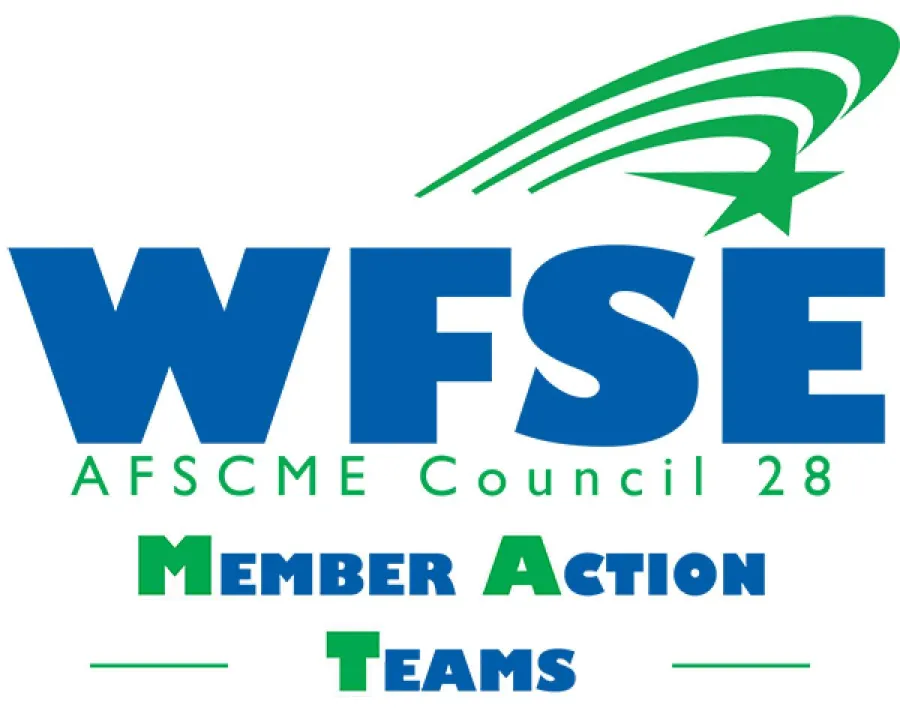DCYF Vancouver MAT Team Scores Win for Foster Youth

WFSE members at DCYF in Vancouver ran a successful petition that ended years of inaction from the state on the issue of housing foster children in hotel rooms.
If there’s one thing all children in the foster care system need, it’s stability. Stability, unfortunately, has been out of reach for many children with complex behavioral health needs who are bounced from hotel to hotel due to a lack of available foster families and group homes.
DCYF is well aware of the challenges that arise from these “emergency placements” —added stress for children, burnout for the staff supervising them and unsustainable costs associated with hotel rentals and security.
But many DCYF staff members thought the agency could and should be doing more.
“Confining and containing and babysitting are not in the best use of a social worker’s skills.”
Jimmy Vallembois, a DCYF social service specialist who was recently promoted to a program manager specializing in substance use disorder, decided to speak up because he felt that social work was starting to also play the role of juvenile detention.
“Confining and containing and babysitting are not in the best use of a social worker’s skills,” Jimmy said. “We are supposed to be helping families thrive and grow and provide them resources. How can we do that if we are using staff to replace foster homes or placement facilities?”
As a member of a WFSE Member Action Team (MAT), Jimmy had a group of union activists at his worksite he could turn to, one of whom was Anna Boldry, a social service specialist who has worked for DCYF for 6 years.
“Staff were being assaulted routinely.”
Like Jimmy, Anna was a long-time union member that decided to get more involved because she wanted to see changes in her workplace.
“I had one child repeatedly swinging her fist at my face in a hotel room,” Anna recalls. “Staff were being assaulted routinely. We were supposed to have security at the hotels but they weren’t always as available as they needed to be.”
Jimmy, Anna and other union activists first set up a Zoom conference with DCYF Secretary Ross Hunter to express their concerns and find solutions. Unfortunately, the secretary was more interested in looking at holistic solutions than addressing immediate concerns.
It was clear that the workers themselves were going to have to make the improvements.
“If nobody was going to step up, I decided that I would,” Jimmy said. Union activists drafted a petition and started collecting signatures. Soon they had over 90 of their coworkers signed on.
The petition called for the state to:
- Hire social service specialists
- Provide additional security to meet supervising demands
- Document all safety incidents, specifically those occurring on night shift
- The creation of a state-run qualified residential treatment program (QRTP) with no "Right of Refusal"
A victory — with more work to be done
The petition got DCYF’s attention. In short order, DCYF:
- Leased two properties, one in Chehalis and on in Clark County, to help house foster children
- Assigned a dedicated administrator to focus on the “kids in hotels” issue for 1 year
- Reallocated the position of one of the key administrative assistants to help get resources to kids housed in hotels
But the fight continues. DCYF youth remain in hotels surrounded by strangers, limited to minimal activities, in close proximity to other youth with high needs.
“We see that through our union, we do have a voice.”
But in addition to the immediate improvements won at DCYF, union activists like Jimmy and Anna have discovered a tool — their union — that can be used to ensure they are fulfilling their mission of protecting children and helping families.
“Myself and others in the Vancouver office have always felt far away from Olympia and Seattle where the lobbying and decisions are made. This definitely changed our perspective. We see that through our union, we do have a voice.”
Not a WFSE member?Join us in speaking up for our jobs, families and communities.
